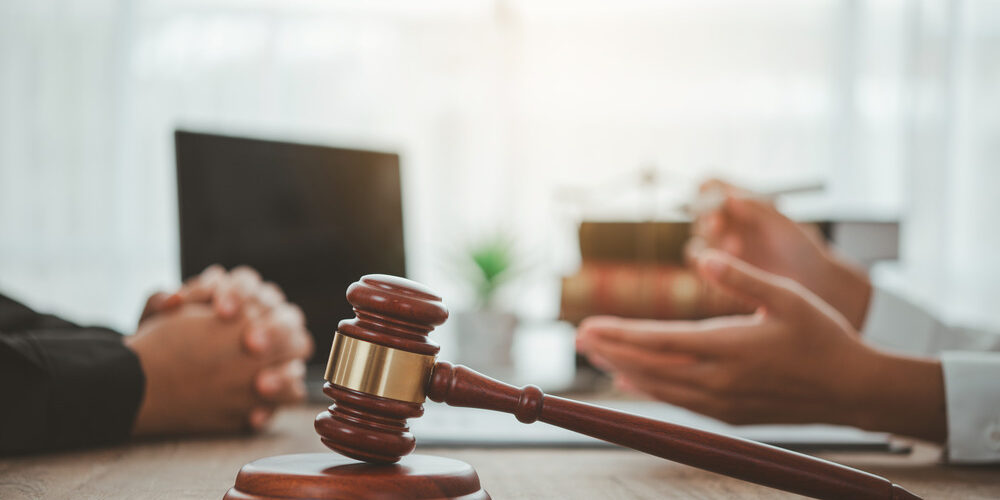Being charged—or even questioned—by police is stressful and confusing. Western Australia’s criminal laws, court rules and deadlines move quickly, and mis-steps can carry long-term consequences. Engaging an experienced Perth criminal defence lawyer gives you clarity, structure and the best chance of protecting your future.
1. Immediate, Reliable Advice
Under the Criminal Investigation Act 2006 (WA) you are not required to answer most police questions, yet many people talk first and regret it later. A lawyer can:
- Explain your rights before any interview or statement.
- Advise what you must disclose (for example, your name and address) and what you may safely decline.
- Ensure all communication with police is recorded accurately and lawfully.
2. Clear Guidance on the Law and Potential Penalties
Western Australian courts apply the Criminal Code Act Compilation Act 1913 (WA), the Criminal Procedure Act 2004 (WA) and many related statutes. A practitioner who works with these laws every day can:
- Identify the exact elements the prosecution must prove.
- Outline realistic sentencing ranges early, so you can make informed decisions.
- Spot available statutory or common-law defences that a non-lawyer might overlook.
3. Management of Court Process and Paperwork
Criminal matters involve strict filing dates, prescribed forms and technical language. Your lawyer will:
- Lodge notices, submissions and evidentiary requests on time.
- Represent you at mentions, case conferences and trial listings—saving you repeated trips to court.
- Translate legal jargon into plain English so you stay in control.
4. Securing Bail and Appropriate Release Conditions
A refused bail application can leave you in custody for weeks or months. Experienced counsel knows the considerations under the Bail Act 1982 (WA) and can:
- Prepare material addressing community-safety and flight-risk concerns.
- Propose workable conditions—such as sureties or reporting—to maximise the chance of release.
- Seek a bail review if circumstances change.
5. Access to Full Disclosure and Further Investigation
The prosecution must disclose its evidence, but gaps and mistakes still occur. A defence lawyer can:
- Request complete disclosure under the Criminal Procedure Act 2004 (WA)—including body-worn video, CCTV and expert reports.
- Engage independent specialists (for example, forensic chemists or digital-forensics analysts) where justified to test the prosecution’s findings.
- Prepare witness statements or locate additional materials that support your case.
6. Negotiation with Police and Prosecutors
Not every matter needs to run to trial. Skilled lawyers:
- Highlight evidential weaknesses that may justify withdrawing or reducing charges.
- Negotiate agreed fact statements or plea offers that reflect what actually happened.
- Present background material—such as treatment plans, rehabilitation courses or community work—that can mitigate penalty.
7. Persuasive Courtroom Advocacy
If your case proceeds to a contested hearing, counsel will:
- Cross-examine witnesses to expose inconsistencies or credibility issues.
- Object to inadmissible evidence under the Evidence Act 1906 (WA).
- Deliver coherent legal submissions and, where relevant, propose alternative verdicts based on the law and facts.
8. Structured Sentencing Submissions
When a guilty plea is appropriate—whether by choice or negotiation—a lawyer can:
- Compile character references, employment records and medical reports that show positive steps taken.
- Argue for community-based orders, fines or suspended sentences instead of immediate imprisonment.
- Apply for a spent-conviction order (where legally available) to limit the impact on your future employment and travel.
9. Protection of Your Rights, Privacy and Peace of Mind
Solicitors and barristers are bound by strict professional-conduct rules. They:
- Keep your information confidential.
- Act only in your best interests, free from police or prosecutorial influence.
- Provide a single, consistent contact so you avoid conflicting advice from well-meaning friends or online sources.
10. Real-World Cost Savings
Legal fees are an investment in avoiding:
- Fines, licence disqualifications and court-ordered compensation.
- Lost work opportunities due to a criminal record.
- Time in custody awaiting trial or sentencing.
Early professional advice often shortens proceedings and reduces indirect costs.
The Dangers of DIY Defence
Some people consider representing themselves to save money or because they believe the facts are simple. In reality, self-representation can make a bad situation worse.
1. Lack of Objectivity
When you act as both the accused and the advocate, emotion clouds judgment. A lawyer brings an objective, forensic mind to the case, free from the stress you inevitably feel.
2. Cross-Examination Is a Learned Skill
Effective cross-examination is not about aggression; it is about methodically testing a witness’s reliability and drawing out evidence that supports your defence. Counsel refine this art over years, often under the guidance of senior practitioners. Without that training, vital points can be lost and credibility damaged.
3. Complex Interplay of Legislation and Case Law
Anyone can read a section of the Criminal Code, but applying it correctly requires knowing how courts have interpreted that section across decades of case law. Misunderstanding a single precedent can unravel an otherwise valid argument.
4. Reduced Sentencing Discount
Western Australian courts grant significant discounts—sometimes up to 25 per cent—for early guilty pleas. If you self-represent, contest the charge, cross-examine witnesses and are then found guilty, you forfeit that full discount. Sentences are usually harsher because the court sees no remorse and resources have been expended on a trial.
5. No Second Chance
Appeals are limited and costly. Mistakes made at trial—such as failing to object to inadmissible evidence or putting the wrong questions—can be fatal to an appeal. By the time you realise the error, it may be too late to fix.
Need Personalised Help?
WN Legal offers a confidential initial consultation to discuss your matter in plain language and outline practical next steps. Phone (08) 9349 2196 or use our secure contact form to arrange a time that suits you.
Whether you’re facing charges or have just been informed by the Police that they want to “have a word with you”, you should know your rights and what they are looking to do with your case.
In most instances, your decision to make admissions can have a serious bearing on your matter. Our Perth criminal lawyers are available to discuss your situation and your options.
Disclaimer
This article provides general information only and is not legal advice. Criminal law is complex, and every case is unique. Please seek specific advice from a qualified practitioner before acting on any information contained here.








